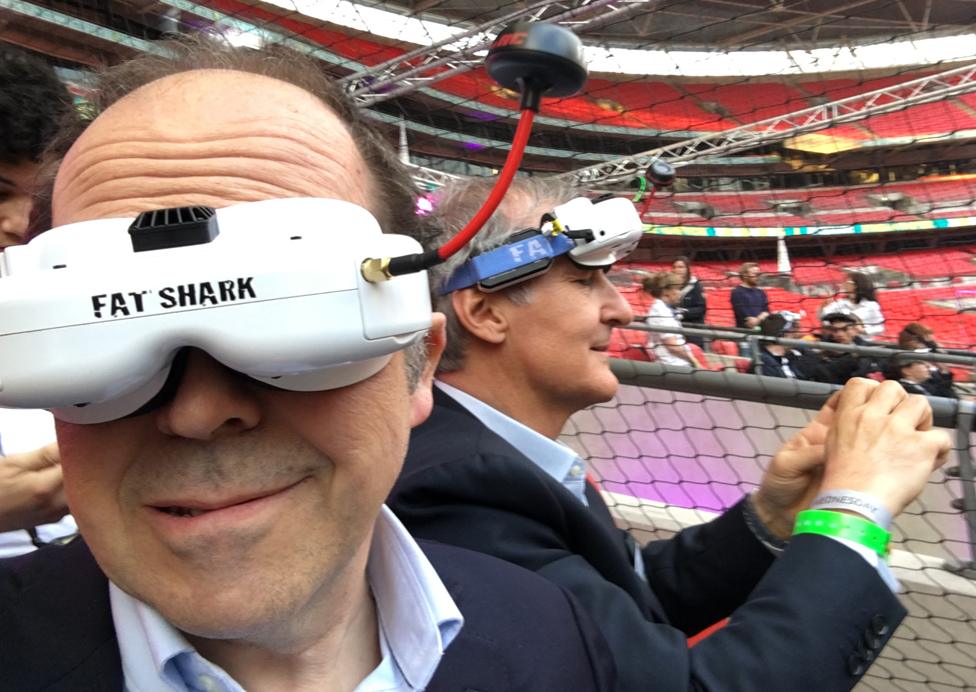Drone racing - sport of the future?
- Published
Drone races will soon be broadcast on ESPN's TV network
At Wembley last night I experienced what could be the sport of the future. Tiny drones raced out of the players' tunnel and did three laps of the stadium, weaving their way through a slalom course.
The races were hard fought and - according to the commentators - full of thrills and spills.
The stadium was empty, apart from a box full of journalists protected by a net, but perhaps in a few years' time huge crowds will gather to watch drone racing. We've heard today how ESPN plans to turn drone racing into a major TV sport - but before it's ready for live spectators, a few issues will need to be sorted out.
Such as how can you actually see what is going on. As the tiny drones whizzed past me last night it was almost impossible to spot them, let along work out who was winning. But the organisers of the event, the mobile network EE, the chip maker Qualcomm and this new sport's organising body the European Rotor Sports Association believe that together they can create an absorbing live experience.
We were shown two other views of the races. First, via the FPV (first person view) headsets the racers themselves wear to guide their drones with amazing skill around the course. Then on tablets showing the view from an EE action camera mounted on the front of each drone, all streamed live over the 4G network.
To wear the FPV headset - where the signal often breaks up and the screen blurs - is to realise the immense skill of the pilots and the speed of their reactions. But it was the tablets which gave the best view of the action.

Perhaps in the future, crowds will sit in a stadium gazing down at their tablets or smartphones at a chosen racer's progress and then up at the real thing whizzing past. But that will need a huge amount of bandwidth and may have to wait until 5G networks come along.
In the meantime, though, plenty of people are coming into the sport. A racing drone isn't that expensive, and many of the racers build their own for a few hundred pounds. Already stars are emerging, including 15-year-old Luke Bannister who was racing at Wembley last night. In March he won the biggest contest so far, the World Drone Prix in Dubai, and a prize of $250,000 (£177,000).
Luke didn't win last night, but seems a very confident young man, focused on getting better at a sport he obviously loves. Who knows, maybe he or someone like him will be battling Formula 1 champions and football stars to be the Sports Personality of 2026.